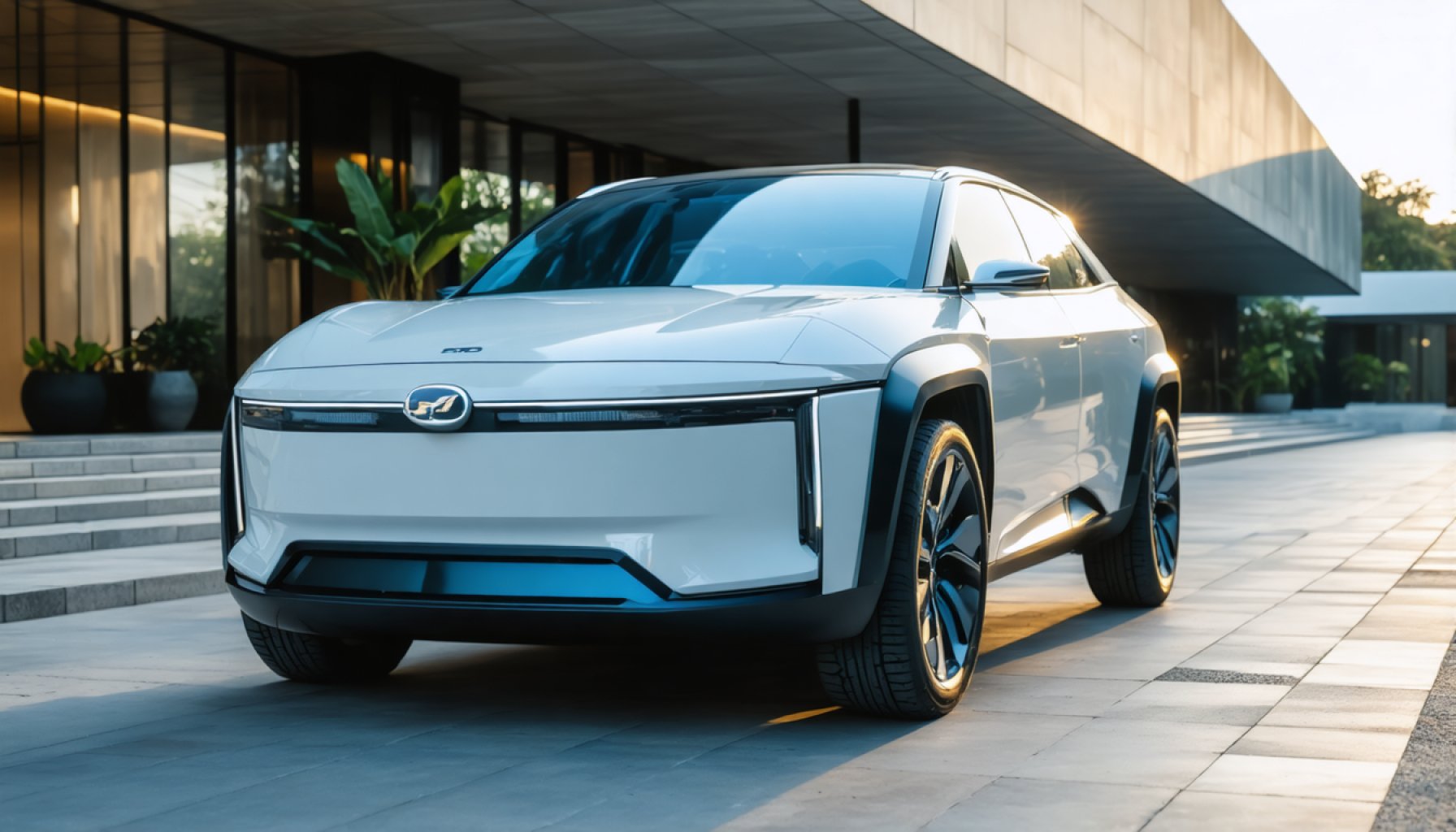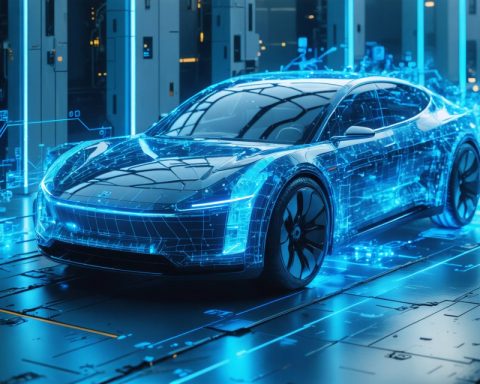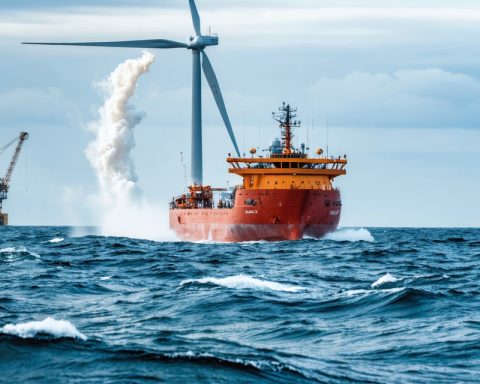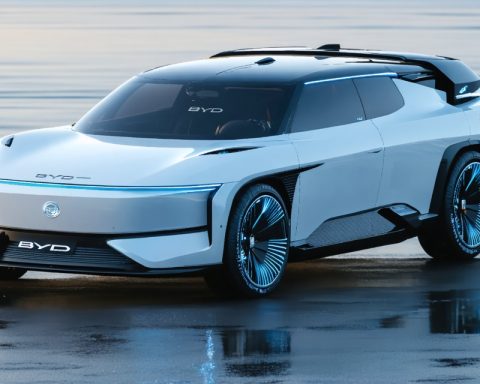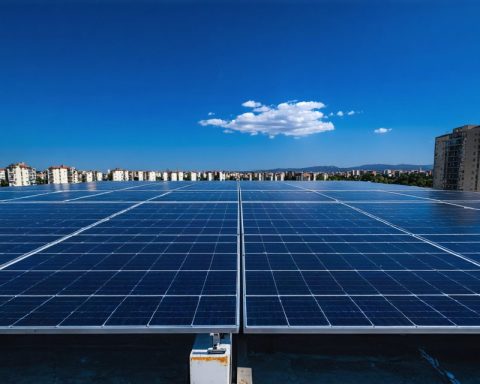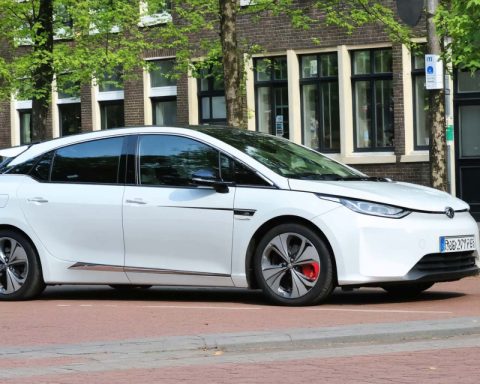- BYD, a global leader in electric vehicles, is establishing a new factory in Camaçari, Brazil, to penetrate burgeoning markets.
- Surpassing Tesla, BYD’s revenues exceeded $100 billion in 2024, highlighting its status as the top electric vehicle manufacturer.
- Brazil presents regulatory and logistical challenges, but BYD is investing nearly a billion dollars to overcome them.
- The venture aims to boost local economies, increase employment, and position Brazil as a hub for eco-friendly automotive innovation.
- Aligning with global sustainability trends, Brazil’s policies support BYD’s mission of reducing emissions through electric vehicles.
- BYD’s expansion into Brazil represents a commitment to a sustainable future, blending commerce with environmental responsibility.
In the vibrant city of Camaçari, the clang of hammers and the clatter of machinery signal a new era in automotive history as China’s electric vehicle titan, BYD, lays the foundation for its sprawling factory. This bold venture marks a crucial pivot in the company’s strategy to anchor itself in burgeoning markets such as Brazil.
BYD: A Global Powerhouse
With global revenues soaring past the $100 billion mark in 2024, BYD has unseated Tesla to become the world’s leading electric vehicle manufacturer. While their cutting-edge technology and competitive pricing have catapulted them to the forefront in China, BYD’s ambition knows no geographical boundaries. The construction of its vast production facility in Camaçari, Salvador, underscores its commitment to tapping into Brazil’s potential as a robust market for electric vehicles (EVs).
Navigating Challenges in the Tropics
Yet, this expedition has not been without its hurdles. Brazil, known for its complex regulatory environment and intricate logistics, poses significant challenges. The path to establishing themselves in the Brazilian market is fraught with bureaucratic red tape and infrastructural obstacles. However, with nearly a billion dollars being funneled into this venture, BYD is determined to navigate these tumultuous waters.
In this ambitious expansion, the focus lies not just on penetrating the Brazilian market but on rejuvenating local economies. By boosting employment and fostering technological advancements, BYD aims to transform Brazil into a hub for eco-friendly automotive innovation.
Brazil: A Fertile Ground for EV Revolution
Brazil’s embrace of EVs, despite current infrastructural challenges and a still-nascent market for electric cars, reflects a growing global shift towards sustainability. The Brazilian government’s favorable policies, aimed at reducing emissions and enhancing clean energy usage, align seamlessly with BYD’s mission. As they carve a niche in this vibrant market, BYD stands at the forefront of Brazil’s electric revolution, promising a future where silent, emissions-free vehicles cruise the streets.
A Green Tomorrow
Through this expansive project, BYD isn’t merely betting on economic gain. It is championing a greener, cleaner tomorrow, one factory at a time. As they forge ahead, BYD’s Brazilian venture serves as a testament to the changing tide of the automotive industry, where innovation meets aspiration in the relentless pursuit of a sustainable future.
In a world awakening to the pressing realities of climate change, BYD’s audacious leap into Brazil speaks volumes of a transformative path where the forces of commerce and environmental responsibility converge to redefine transportation in the 21st century.
Will BYD’s Brazilian Expansion Revolutionize the EV Market?
BYD’s Strategic Expansion into Brazil’s Budding EV Market
By establishing a new manufacturing facility in Camaçari, Brazil, BYD is positioning itself to transform the regional electric vehicle (EV) landscape significantly. This ambitious venture dovetails with Brazil’s burgeoning market and its governmental efforts to nurture sustainable practices. Here’s what you need to know about BYD’s role in shaping the future of electric mobility in Brazil and beyond.
Key Details about BYD and Brazil’s EV Market
1. BYD: A Global EV Behemoth
– BYD’s remarkable achievement of surpassing $100 billion in revenue positions it as a global leader in EV production. This milestone speaks volumes about its capacity to innovate and deliver cutting-edge electric vehicles globally. Their technological prowess and competitive pricing have become pivotal in expanding their market presence.
2. Market Potential and Economic Impact
– Brazil represents a strategic market for EVs due to its large population and growing demand for sustainable transport. BYD’s investment could stimulate local economies by creating jobs and fostering technology transfer, transforming Brazil into a hub for EV assembly and distribution throughout Latin America.
3. Navigational Challenges in Brazil
– Despite the significant market potential, BYD faces regulatory hurdles and complex logistics. Navigating Brazil’s bureaucratic landscape requires a deep understanding of local governance and infrastructural dynamics. The $1 billion investment BYD is pouring into overcoming these barriers underscores its commitment to succeeding in Brazil.
Real-World Use Cases and Predictions
– Knowledge Transfer and Technology Development
– BYD’s facility is expected to promote technical advancements by partnering with local educational institutions and businesses. This collaboration could lead to innovative EV solutions tailored to Brazil’s unique needs, reinforcing the skills of the local workforce.
– Infrastructure Development
– The expansion will likely accelerate EV charging station deployments across Brazil, essential for supporting the widespread adoption of electric vehicles.
– Environmental Benefits
– As emissions regulations tighten, BYD’s expansion aligns with global efforts to reduce carbon footprints, helping Brazil meet its environmental goals and inspiring similar initiatives across Latin America.
Market Forecast and Trends
– EV Market Growth in Brazil
– With BYD’s influence, the EV market in Brazil is anticipated to grow exponentially over the next decade. Government incentives for EVs, such as tax breaks and rebates, could further spur consumer interest.
– Regional Integration
– BYD’s entry could facilitate enhanced regional supply chain networks, leading to more competitive pricing and increased availability of EVs.
Key Challenges and Considerations
– Regulatory Environment
– The regulatory hurdles in Brazil remain a concern. Understanding local policies and ensuring compliant operations will be critical for BYD.
– Economic Stability
– Brazil’s economic fluctuations may impact consumer purchasing power and, by extension, the adoption rate of EVs.
Actionable Recommendations
– Consumer Awareness
– Prospective buyers should educate themselves about government incentives related to EV purchases and the long-term economic benefits of owning an electric vehicle.
– Industry Collaboration
– Local companies should explore partnerships with BYD to leverage emerging opportunities in manufacturing and R&D.
– Environmental Advocacy
– Stakeholders are encouraged to advocate for policies that support sustainable practices and to engage with local and international environmental organizations to advance EV-friendly regulations.
With BYD leading the charge, Brazil could quickly become a major player in the global EV landscape, aligning commerce with sustainability in this eco-friendly revolution.
For more insights on global sustainable transportation trends, visit BYD.
